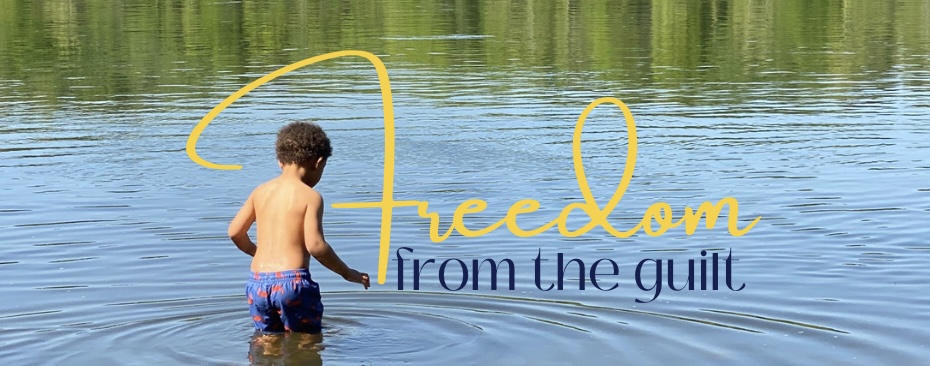I’m often asked what the trickiest element of grieving is for the majority of my clients.
Hands down: Guilt!
But how do you get rid of the guilt after suffering a major loss?
Psychologically, it makes sense. After a loss, we can no longer go back and change something we may have said or done, so the brain is left playing the same recording over and over and over again: “You could have/should have done X instead.”
It’s not hard to reach for a biblical example. The most vivid one is Peter’s denial of Jesus. What makes it worse is that Peter was even told what he was going to do, and he still did it. You can almost hear the repeated record in his mind:
“If only I had NOT denied him, if only I could have saved him or at least been there with him.”
What Jesus brings into Peter’s life, and what Jesus wants for us, is not just deleting the guilt—he wants a grand restoration. Instead of being charged as “guilty,” Peter is charged with a task: “If you love me, feed my sheep.”
If Jesus didn’t want Peter to suffer with guilt, he certainly wouldn’t want us.
Guilt is standing in the way of our healing and restoration.
If this is a challenge we face, we have three steps to take towards restoration:
SEE (OBJECTIVELY) WHAT WE ARE DOING TO OURSELVES.
The human condition is as old as humanity. We turn the guilt and the blame on ourselves. We do what we think God would do to us. How could God forgive me for doing what I have done?
God is not the God of guilt. God is the God of healing.
God can take anything you see as your biggest mistake and show you He wants to restore you.
“Bring it to me.” “I want to heal you.” “I want you to be in communion with me.”
Healing is EVEN possible for the person left behind after suicide, an accident, and an overdose.
Is this actually possible?
Yes.
But how?
As Rumi says in his beautiful poem:
Don’t turn away.
Keep your eyes on the bandaged place.
That’s where the light enters you.
HEAR WHAT WE ARE SAYING TO OURSELVES.
In the spiral of guilt and regret, we often hear our minds telling us, “This is just the way things are.”
These may be the most falsely benign words in our vocabulary. These words lead to apathy. In grief, these words can lead to being trapped in our guilt and regret forever.
On a global scale, these same words lead to the spreading of unspeakable evil. We can say to ourselves we would never allow unnecessary harm to come to others but then allow for months, maybe years, of harm to continue at our own hands, in our own lives, as we grieve.
SPEAK THE UNSPEAKABLE.
The longer I walk this path of grief healing (for myself and with clients), the more I realize the value of walking with someone.
First, when we go it alone, it’s almost as if we can’t see the real hurt.
Secondly, we have to be reminded we will not completely disintegrate once we speak our hurt—speak what our heart is saying. This can be the greatest step, the first step towards real healing.
Identify it, speak it, allow the emotion, and deal with the feelings.
Something happens when we speak about guilt—out loud. We realize that what we are actually feeling is something completely different. Guilt denotes that we intentionally did something wrong. But perhaps we didn’t do something intentionally. If that’s the case, then we can assign a new word: Regret.
As we identify what the hurt truly is, speaking the unspeakable, and noticing what we say to ourselves, we find ourselves courageously standing on the other side—not broken but stronger.
What has guilt and regret destroyed in your life? What would restoration look like? What is God calling you to look at with fresh eyes today?

